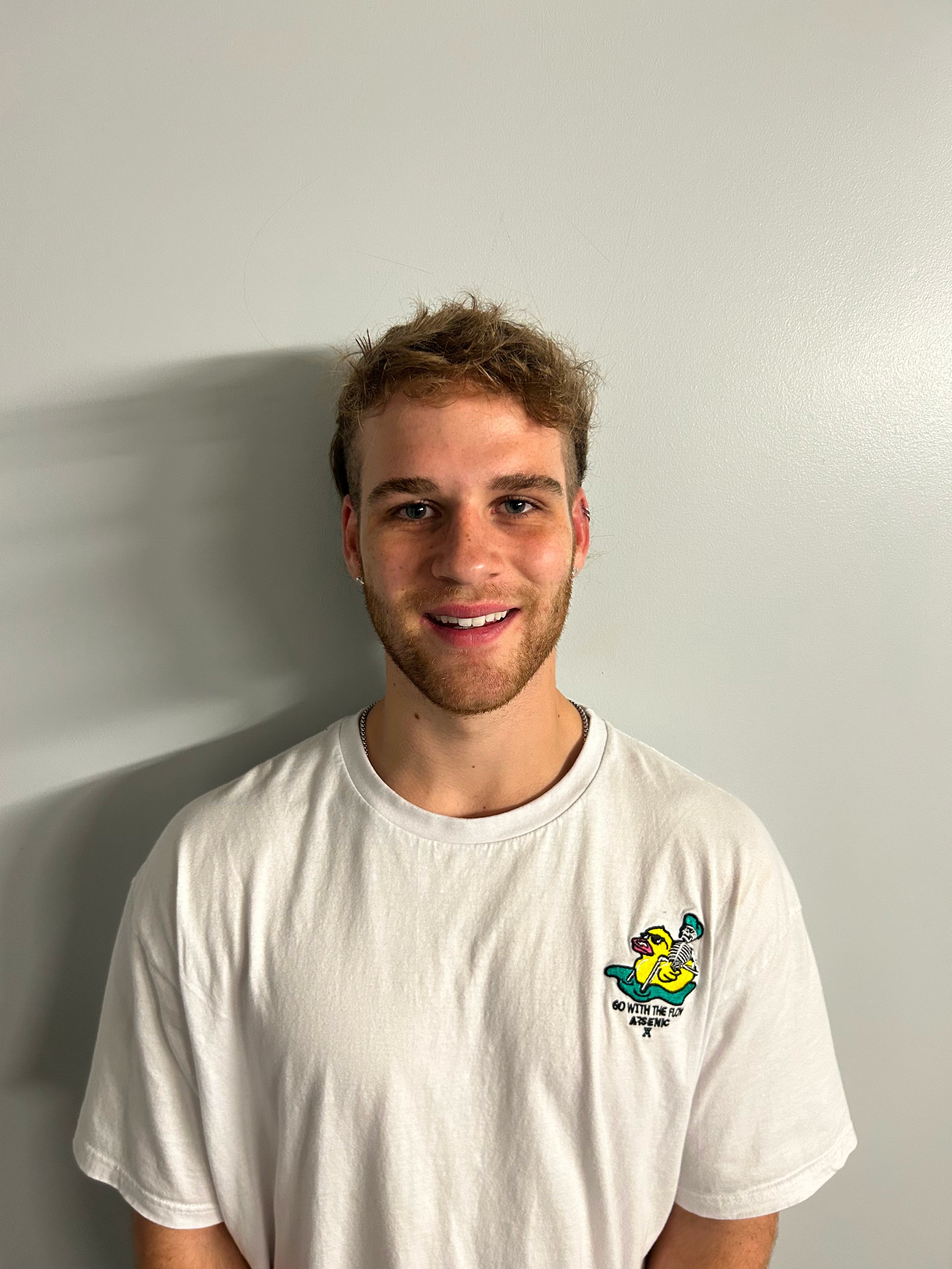Welcome to the CREATE Lab
What is the neural basis of knowledge? How does the brain form concepts? What is the role of the body in cognition?
The CREATE Lab in the Psychology Department at Memorial University of Newfoundland and Labrador investigates these questions.
I am a theoretically motivated experimental psychologist pursuing the idea that cognition is embodied—that thinking and learning arise from brain-body-environment interactions in the service action. Using the brain imaging techniques of cognitive neuroscience (brain wave measurements using electroencephalography), the CREATE Lab tests hypotheses about the role of embodied experience in shaping brain function and thought.
Neurophilic, but not neurocentric
CREATE is an acronym for Conceptual Representation & Embodied Action in Thought & Experience. Our name hints at one of the central tenants within the framework of embodied cognition: The mind is created from brain, body, environmental interactions. In the CREATE Lab, we conduct fundamental research on how we learn concepts and think with them. In understanding how the healthy brain works, our research has important implications for learning in education and rehabilitation in health. Students in the lab gain valuable hands-on training in the scientific study of human behaviour and the brain, skills that allow them to address a variety of problems related to human psychology. With this approach, we ultimately seek to improve our understanding of the organization of the brain and behaviour.
We enjoy empirical and theoretical collaborations with researchers, students, and community members, interested in the ways in which our conceptual thinking is embodied, embedded, enacted, and extended. If this is you, please reach out and introduce yourself!
Current Research
-

Object recognition and semantic memory
We investigate how knowledge changes the brain and how embodied experience grounds neural representations. Currently, we are investigating the functional role of sensorimotor information in supporting the categorization of pictures and words.
-

Creative problem solving
We investigate how embodied knowledge shapes the neural processes that support creative thought. Recent research investigates how neural simulations of embodied action influence creative problem solving.
-

Cognitive neuroscientific theory
We seek to address big picture questions about how embodiment helps us explain the brain, mind, and behaviour. Currently, we are discussing embodiement’s implications for neural representation, mechanistic modelling, and functional localization.
Some of our current student collaborators
-

Danica Robichaud
I am doing my MSc, co-supervised by Dr. Heath Matheson and Dr. Benjamin Zendel. I completed an honours degree in the CAANLab which examined how the brain tracks tonal hierarchy. Currently, I am looking at how musicians embody the memory of musical pieces.
-

Gabriel Smith
I'm doing my honors in Psychology (BSc) with Dr. Heath Matheson. For my thesis, I'm analyzing the effects that ADHD has on one's creativity. I'm hoping to do my masters next year in Clinical Psychology, with the end goal of eventually obtaining a PHD.
-

Matthew Sargent
I am currently continuing research I conducted throughout my MSc at the University of Northern British Columbia with Dr. Heath Matheson. My project relates to neural indices of semantic prediction, and how these indices may be affected by schizophrenia-like traits and cannabis use. I am starting a new position as Research Manager with Centre for Technology Adoption for Aging in the North
-

Susie MacRae
I am currently a PhD student at the University of Western Ontario. I am interested in how motor information and semantic knowledge shape our memories of object locations. I am working with the CREATE lab on a meta analysis of the role of the motor system in memory.
-

Justine Yick
I am currently an M.Sc. student studying Experimental Psychology supervised by Dr. Kathleen Hourihan and learning the ways of ERP data analysis. Within the CREATE Lab, I have been looking into how sensorimotor information may influence how we categorize pictures and words.
-

Tanvi Vora
I am currently working with Dr Matheson as a Research Assistant having completed a BA(Hons) degree in Psychology from MUN. Our current focus is using the EEG THINGS database to learn about how the brain perceives different objects. I hope to use this experience towards pursuing graduate studies in Clinical Psychology.
-

Michael Patrick Herbert Hopkins
I am a third-year psychology student pursuing a joint honours in Psychology and Biology (BSc). I am currently one of Dr. Matheson's Research Assistants in the CREATE lab, assisting in data entry and analysis. My research interests lie in exploring psychological aesthetics in music and their physiological effects on the human body.
-

Steven Nzoyamara
I am a third-year behavioural neuroscience student pursuing an honours degree. I received an NSERC USRA grant which allowed me to become a Research Assistant in Dr. Matheson's CREATE lab. I assist in programming, data collection, and analysis. My current research interests include linguistic relativity and how that impacts creativity and music perception as well as neuroscientific theories surrounding embodiment.
Skill building opportunities for students
Abstract and analytic thinking
The relationship between the mind and brain is complex. Students learn how to think abstractly about complex systems and sharpen analytical skills while designing and interpreting cognitive neuroscience experiments.
Knowledge translation and dissemination
Generating and testing complex hypotheses requires sophisticated methods for translating knowledge. Students have opportunities to communicate to scientific and general audiences in presentations and written work.
Advanced quantitative skills
As a complex system, the brain requires advanced quantitative approaches, including statistics and machine learning. Students learn how to effectively use programming languages (e.g. R, MATLAB) with broad application.
Ethics
Our scientific interests are in the human mind and behaviour. Students learn about the importance of humanistic thinking and obtain experience ethically interacting with human research volunteers.
Biomedical techniques
Electroencephalography (EEG) is a biomedical technology used in clinical settings for diagnosing and treating various neurological conditions including epilepsy and sleep. Students get hands on experience with EEG.
How to study the mind
The mind and brain are mysterious. Students leave the lab with the advanced knowledge of the study of mind and brain.

